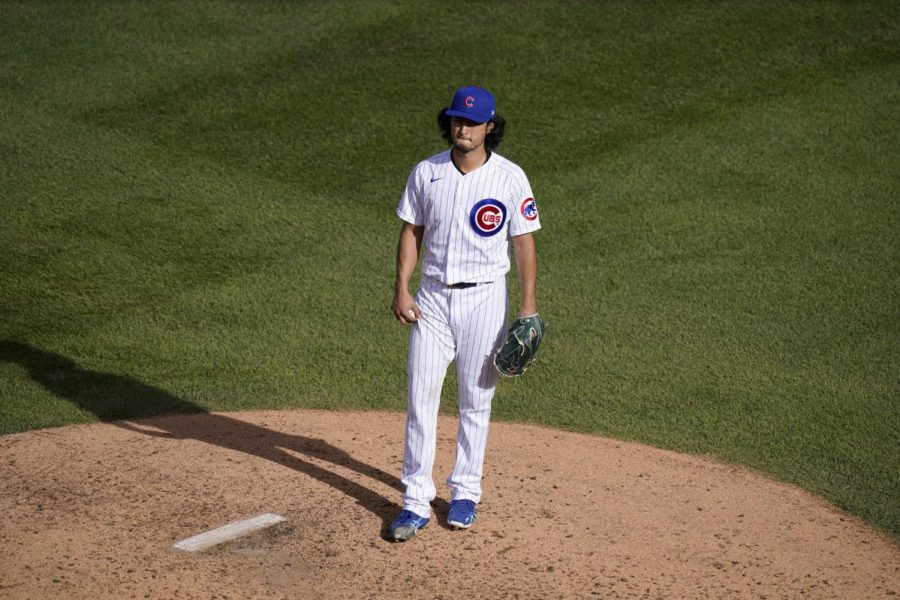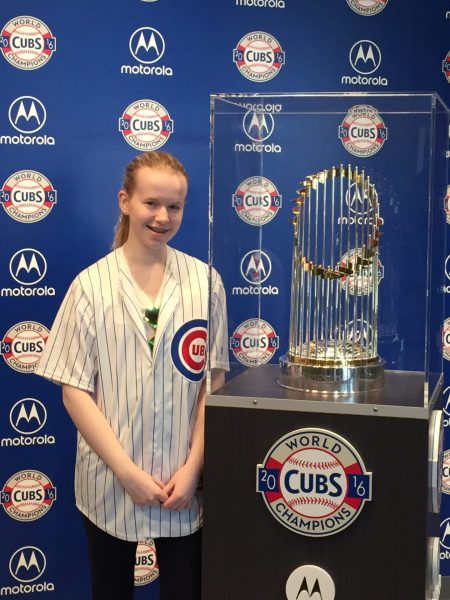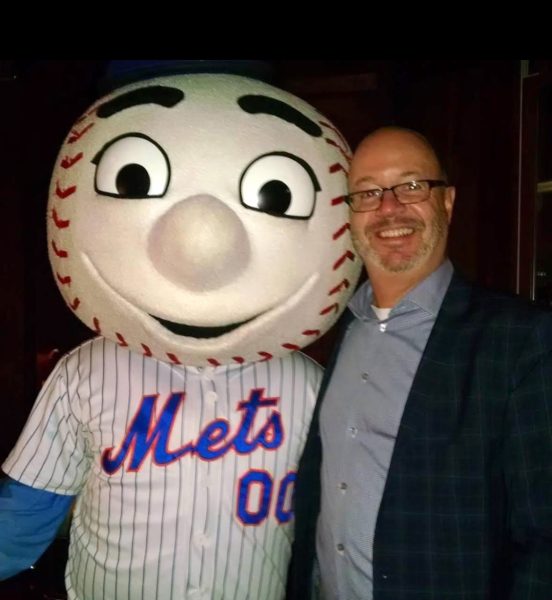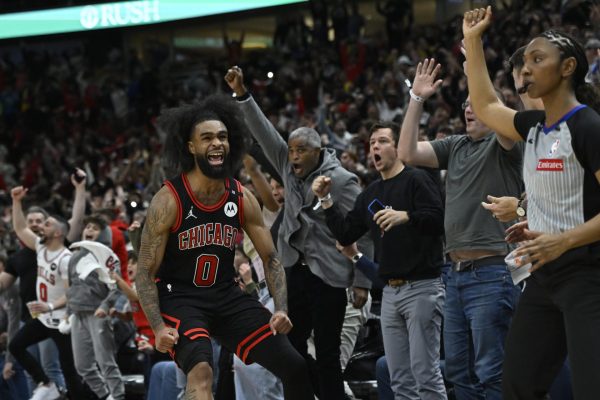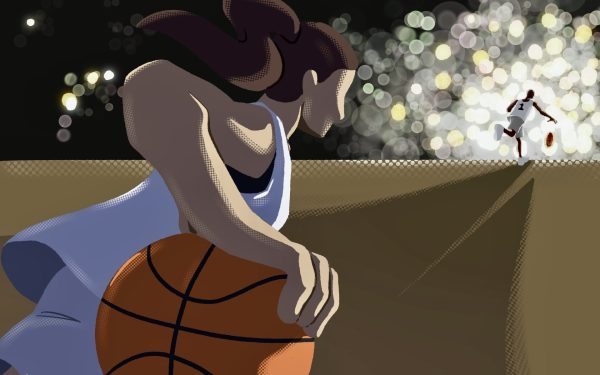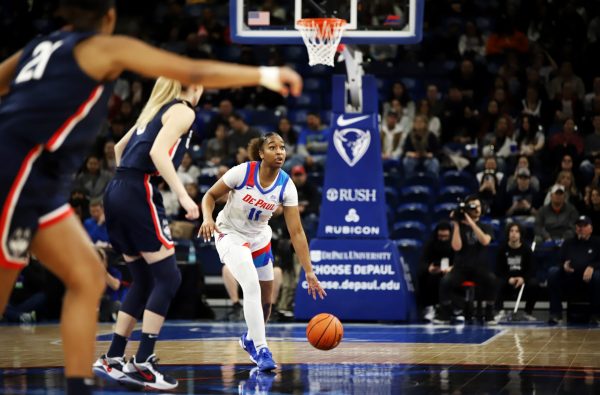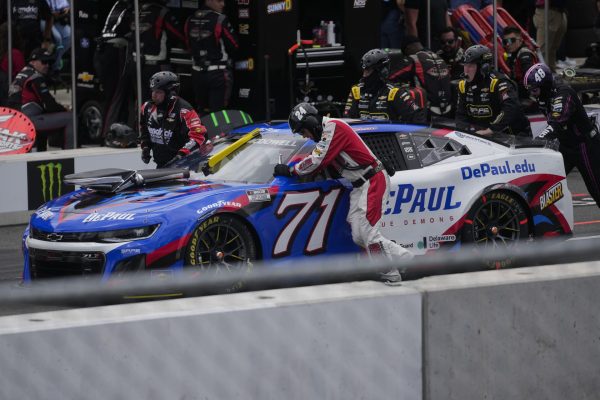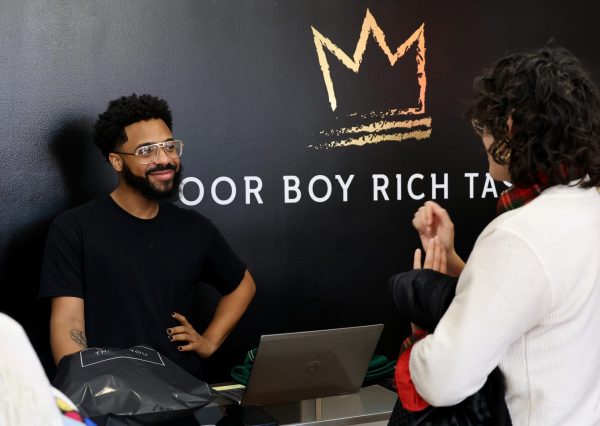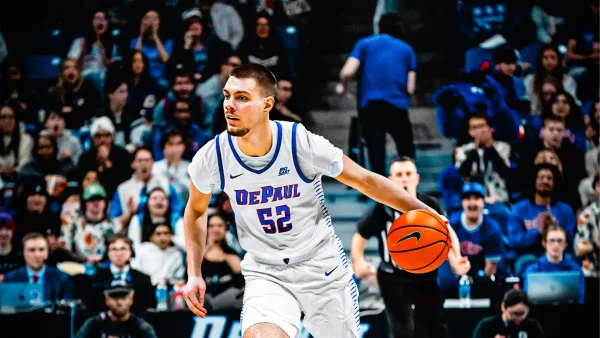COLUMN: Cubs raise the white flag with Yu Darvish trade
Credit: AP
Chicago Cubs starting pitcher Yu Darvish waits on the mound after being removed during the seventh inning of Game 2 against the Miami Marlins on Friday.
“I don’t think anyone is tearing anything down.”
Those were the words of Cubs’ owner Tom Ricketts during a press conference where Jed Hoyer was named as the new team president, taking over for Theo Epstein.
That press conference took place on Nov. 23, 2020. Days later, however, the tear-down began when the club declined to extend contracts to outfielders Kyle Schwarber and Alber Almora Jr. The former played a huge part in the Cubs’ 2016 World Series win.
A few weeks later, in the clearest sign that a rebuild was underway, they traded catcher Victor Caratini and ace pitcher Yu Darvish to the San Diego Padres.
“In this environment, and really every transaction you ever make, this is a business and we always have an eye on the finances of every deal, and in 2020 some of those things are magnified, but that was not the focus,” Hoyer said.
Despite claiming that money was not the focus, one of the biggest takeaways from the deal was the Cubs saved the $59 million remaining in Darvish’s contract.
The pandemic has hit everyone hard, and baseball is no exception. In an interview with ESPN, Ricketts claimed the league suffered “biblical losses” because Covid-19 and the shortened season. However, since owners are not required to open their books, it is difficult to take them at their word.
Arguing that the latest moves are not financially motivated is hard to swallow when ownership has been crying poor nearly the entirety of last season.
Only four years after breaking a century-plus long championship drought, the Cubs are telling their fans their window of competing for another title is all but over.
Which brings the question: If the Cubs do not care about 2021, why should you?
The plan ahead of the new season appears to be to dismantle the team piece by piece and reset. The Cubs are no stranger to tanking, having done so early in the Ricketts’ tenure. When Epstein was brought in, his goal was a complete rebuild followed by sustained success.
Now the Cubs are asking their fans to go through another period of sustained losing in exchange for long-term success under the assumption that those days of contention are over.
A team in the third-largest market in the country should not be punting a season after coming off one in which they won the division. They certainly should not be trading a pitcher that was the runner-up in the Cy Young race. They should not be pinching pennies and being outspent by the likes of the Padres, with all due respect.
According to Yahoo, the Cubs have the highest average cost when it comes to attending a baseball game at Wrigley Field. On average, two people going to a Cubs game will need to spend $118.98 on tickets. The total cost reaches $177.14 when factoring in food, drink and parking.
No one is denying the Cubs took a hit with the lack of fans this season. But it was exactly that. Just one season. It should not be used as the sole excuse as to why they cannot compete to sign free agents. So far, they do not seem to even be making offers. It should not be an excuse as to why they cannot sign someone like Javier Baez to a contract extension.
This is not solely a Cubs matter. This is a league-wide issue where only a handful of teams are making an effort to actually compete. Everyone else is competing in a race to see who can cut the most costs.
The decision to trade Darvish would have been a lot better if they got a decent return in exchange. But they only managed to get right-hander Zack Davies and four young prospects, none of which are likely to make the major league roster anytime soon. If the Cubs were intent on competing this season, they would have kept Darvish or at least held out for a better return with prospects who were close to ready for the big leagues.
The Cubs’ intent is not to compete. Not on the field anyway. It’s to save as much money as they can. It’s not going to be a one-time thing either. With no guarantee that fans will be allowed in ballparks by the time next season starts, they’ll use it as an excuse as to why they had to trade so-and-so or why they didn’t spend in the offseason.
The franchise is valued at $3.4 billion, according to Forbes. If owners aren’t making money in baseball and the team cannot afford to compete, perhaps it’s time that Ricketts start thinking about selling.
The Cubs were supposed to be the New York Yankees or the Los Angeles Dodgers of the midwest. Instead, they’re going to go back to being the “lovable losers” many people grew up with. Except, there is going to be little, if anything, “lovable” about this edition under this ownership.


